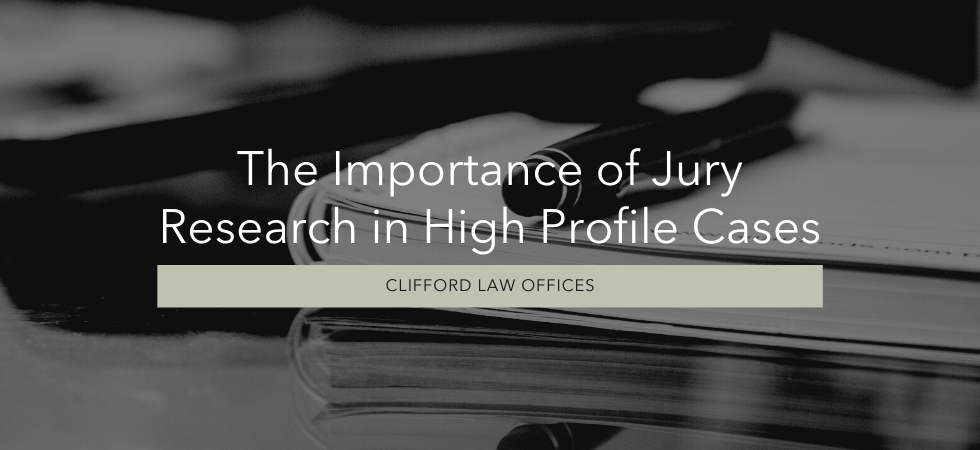Jury selection is one of the most important parts of the trial process. In an article for Best Lawyers, Robert A. Clifford and Bradley M. Cosgrove, partners at Clifford Law Offices, discuss the importance of jury research in high profile cases.
Jury selection is an important process that can be a major factor in deciding the outcome of any case. Many lawyers consider experience to be the most important asset when it comes to jury selection. However, as important as experience can be, relying solely on experience can lead to incorrect assumptions. This is where jury research becomes necessary.
Currently, there are two main sources of data when it comes to jury research:
- Live focus groups – in which a small pool of people hear case synopses in the style of a closing argument. After arguments, mock jurors deliberate, fill out verdict forms, answer survey questions, and provide background information.
- Online jury research – this is particularly helpful as it provides a much larger data pool that can be used to formulate favorable juror profiles.
When done properly, jury research is beneficial to an attorney:
- It gives attorneys objective data on case value, so clients can feel that the advice given is based on analytics and data instead of whim or gut feeling.
- It allows lawyers to test multiple aspects of a case.
- Talking to mock jurors allows lawyers to determine which parts of the case need to be reframed before trial, or which evidence to highlight to be most persuasive.
- It gives attorneys information about who they do and do not want on their jury.
Jury research takes away bias and gives lawyers objective information with which to make decisions. It reveals what types of jurors are best suited for each case—so it’s important to get out there and do some research.
To read more about jury research, click here to read the full article by Robert Clifford and Bradley Cosgrove.

